‘He couldn’t deliver’: Bob Hawke regretted failing to deliver recognition, treaty to Yunupingu
Blanche D’Alpuget says Bob Hawke deeply regretted failing to deliver the recognition and treaty he promised to late land rights giant Yunupingu 35 years ago at Barunga.
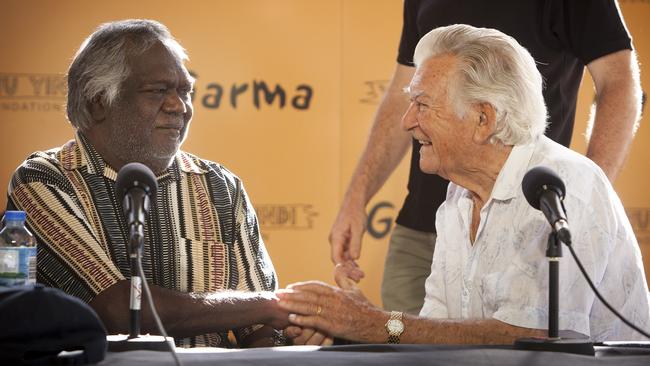
Bob Hawke’s widow, Blanche d’Alpuget, has revealed his great regret at breaking his treaty promise to land rights giant Yunupingu.
D’Alpuget on Friday entered the debate over an Indigenous voice to parliament by explaining for the first time how the former prime minister felt about failing to deliver the treaty that in 1988 he said he hoped would be complete “before the end of the life of this parliament”.
While the campaign against the voice has relied on a quote by Hawke that “there must be no privilege of origin” in Australia, d’Alpuget announced on Friday that her late husband would want Australians to vote yes at the voice referendum to be held between October and December.
D’Alpuget asked that her message be read aloud on Friday at the Barunga Festival on the lands of the Bagala people, southeast of Katherine in the Northern Territory, where Hawke stood on the sports ground with his first wife Hazel 35 years ago and pledged a treaty. At the time, Yunupingu was head of the Northern Land Council that co-wrote the Barunga Statement and its call for treaty with the Central Land Council.

Indigenous Australians Minister Linda Burney read d’Alpuget’s message to hundreds of Indigenous people who had travelled from across the Territory for the annual celebration of Indigenous culture and football.
“There are many joys but also many tears in politics,” d’Alpuget said in the message.
“Bob once said to me, ‘Yunupingu is a soul in torment. He grieves for his people. Bob grieved too.
“His greatest disappointment as prime minister was that he could not deliver his promise to Yunupingu with the indigenous people of Australia – for recognition.”
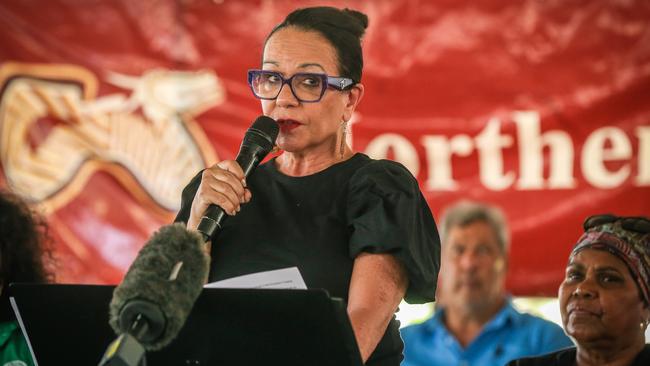
Hawke lost the prime ministership to Paul Keating three years later, and his last act as prime minister on December 20, 1991, was unveiling the Barunga Statement at Parliament House with Yunupingu.
“He loved Yunupingu and grieved that he’d let him down,” d’Alpuget said in her message.
“Now all these decades later the voice gives a chance for joy and celebration for the spirits of these two great men.
“Bob would want Australians to”.
After Ms Burney read out the message, more than 200 men and women representing the Territory’s four land councils signed a revised version of the historic Barunga Statement of 1988.
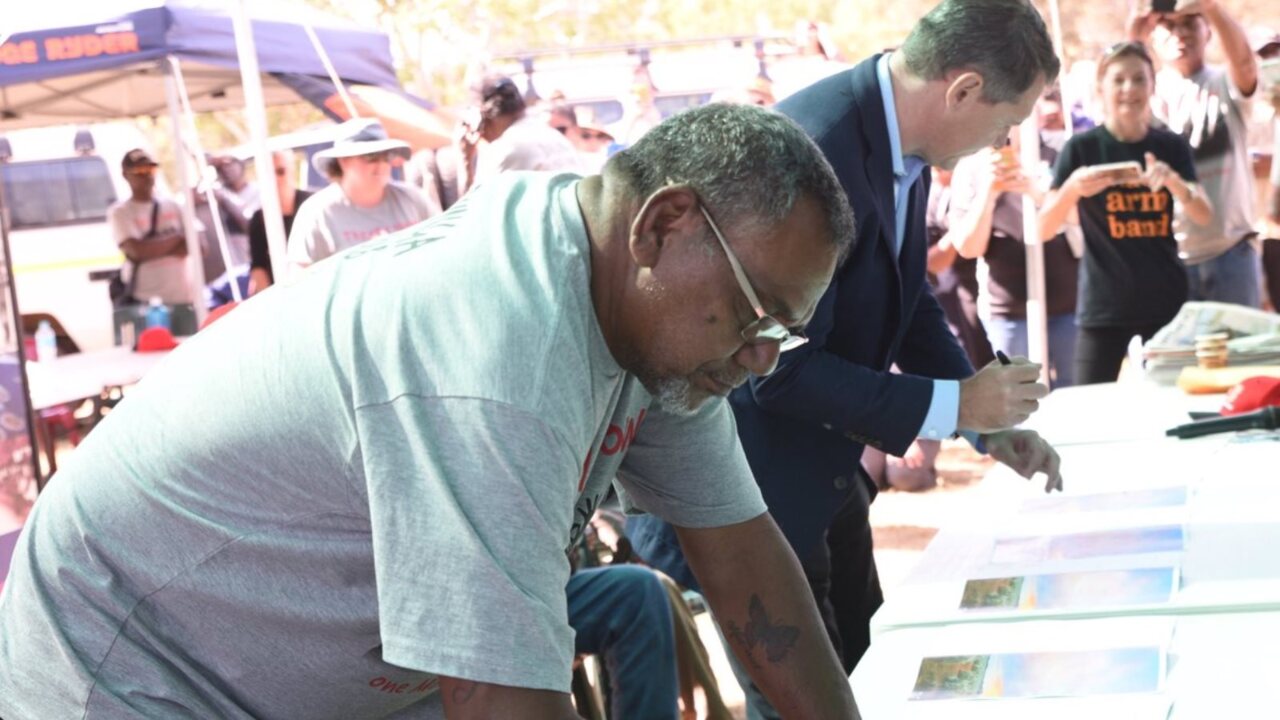
The original called for recognition and treaty and an elected national representative Indigenous body. The Barunga Voice Declaration was released on Friday following three days of meetings between the Northern, Central, Tiwi and Anindilyakwa land councils at Barunga. It affirms their continued support for the Uluru Statement from the Heart and its call for an enshrined voice in the Constitution.
Tenant Creek woman Renata Morrison, 29, said she signed the declaration because she could see that poor decisions were being made about how to address problems in her home town.
“We need things for youth to do, to keep them busy,” she said.
“People have ideas but nobody has been listening.”
Barbara Shaw, who was 11 when her father contributed to the Barunga Statement, said she could see herself in the Uluru Statement from the Heart because she helped to shape it at meetings in Melbourne, Ross River and finally at Uluru in May 2017.
“I live in a town camp at Alice Springs and I had the same say as all these other people about what should be in it,” Ms Shaw said
“I hear my voice in it, I hear my people’s voice in it.”
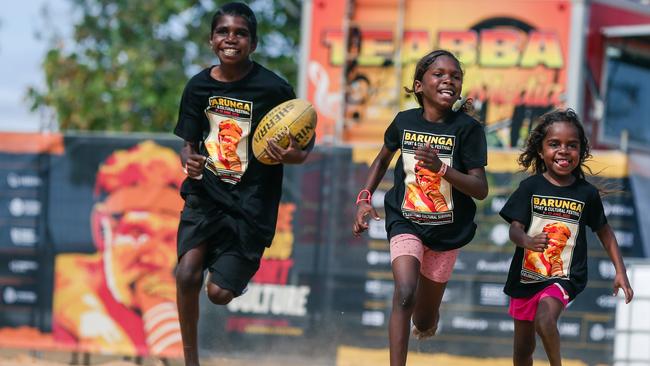
Ms Shaw said some Indigenous people in her community were against the voice, which puzzled her because it was obvious that the status quo was not working.
She said Alice Springs was full of government buildings and a lot of government money had been spent yet Indigenous people were still living in overcrowded houses and anti-social behaviour persisted.
“I ask people ‘do you like the way you’re living? Do you like the crime? Do you like all these social problems?’ And I think that’s important to think about,” she said.
Yes23 campaign director Dean Parkin said the declaration signed on Friday was more proof that the voice had a groundswell of support in remote Australia.


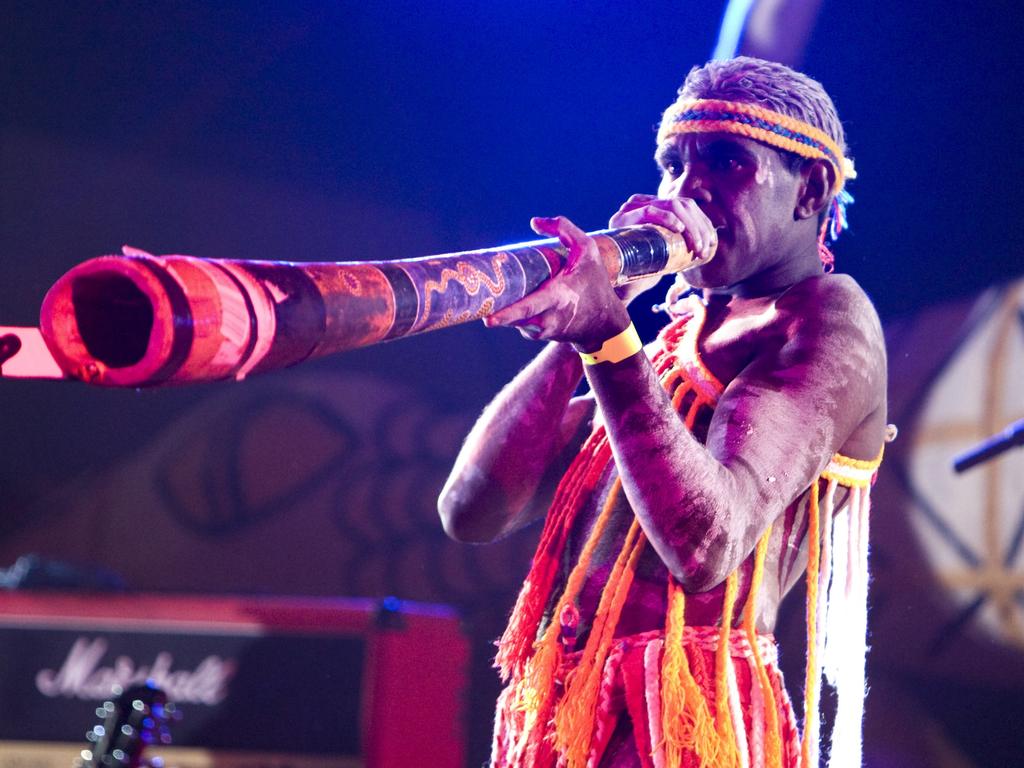
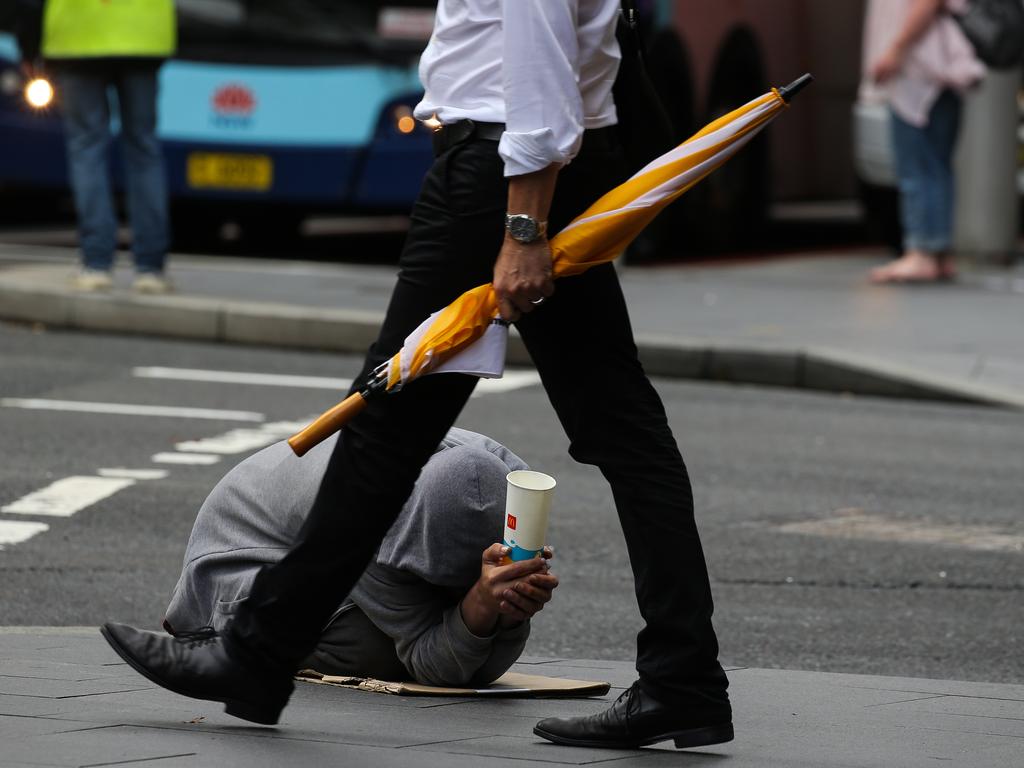
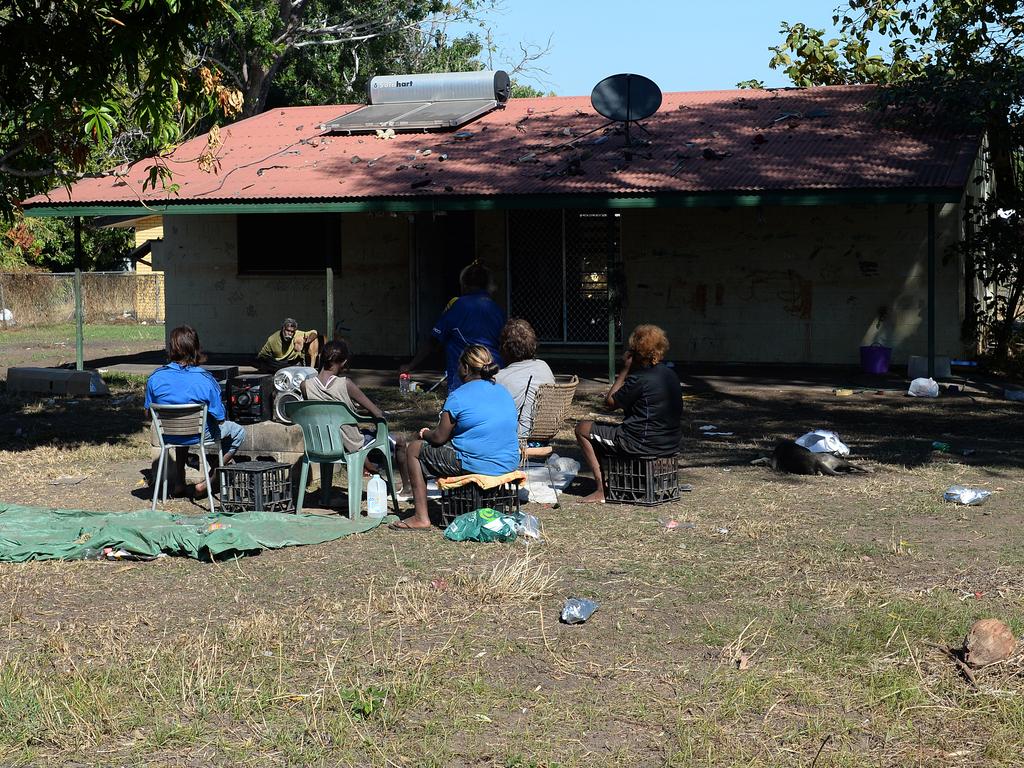
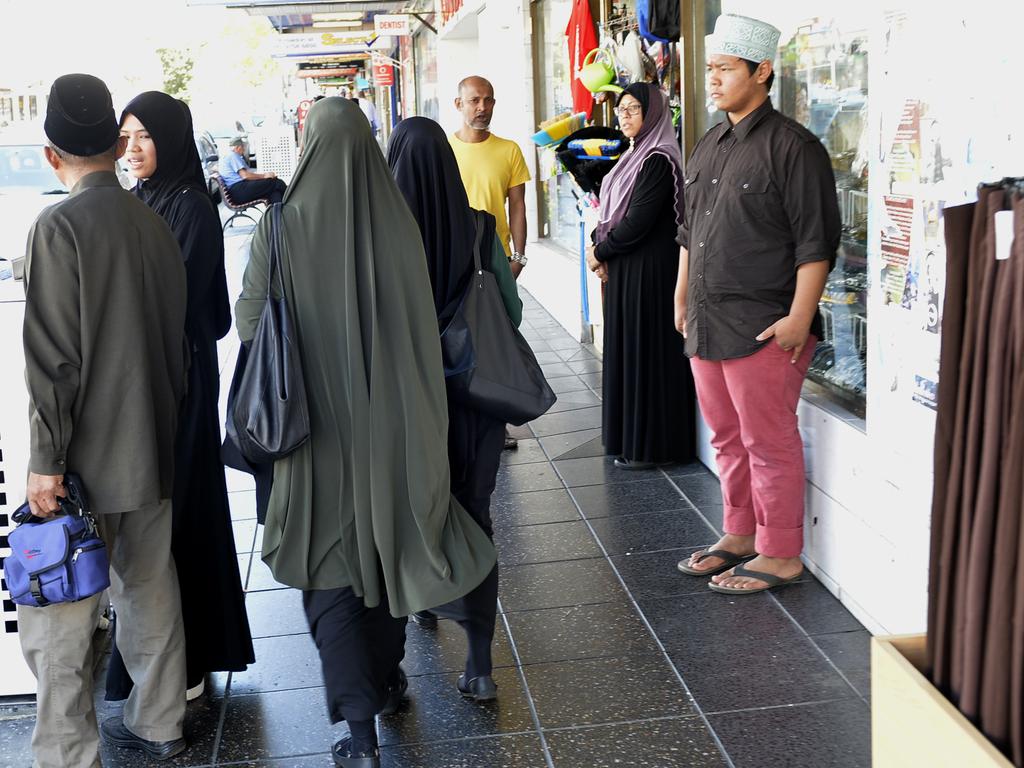
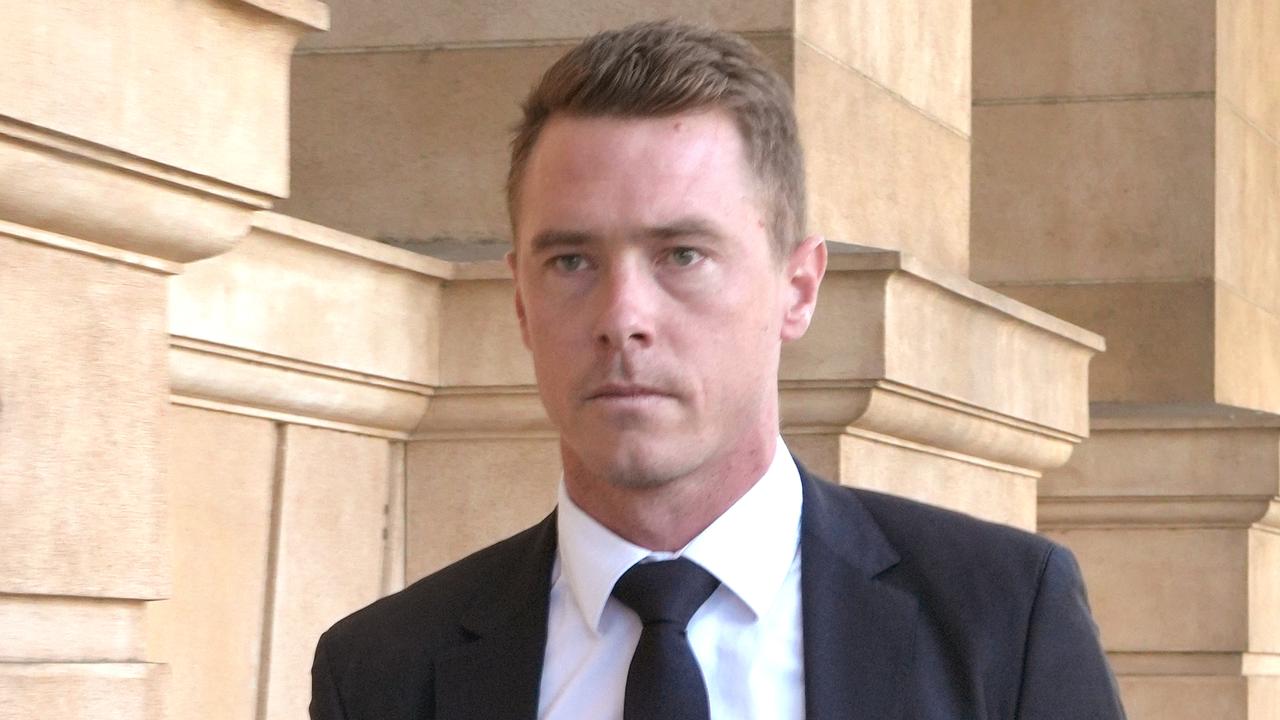
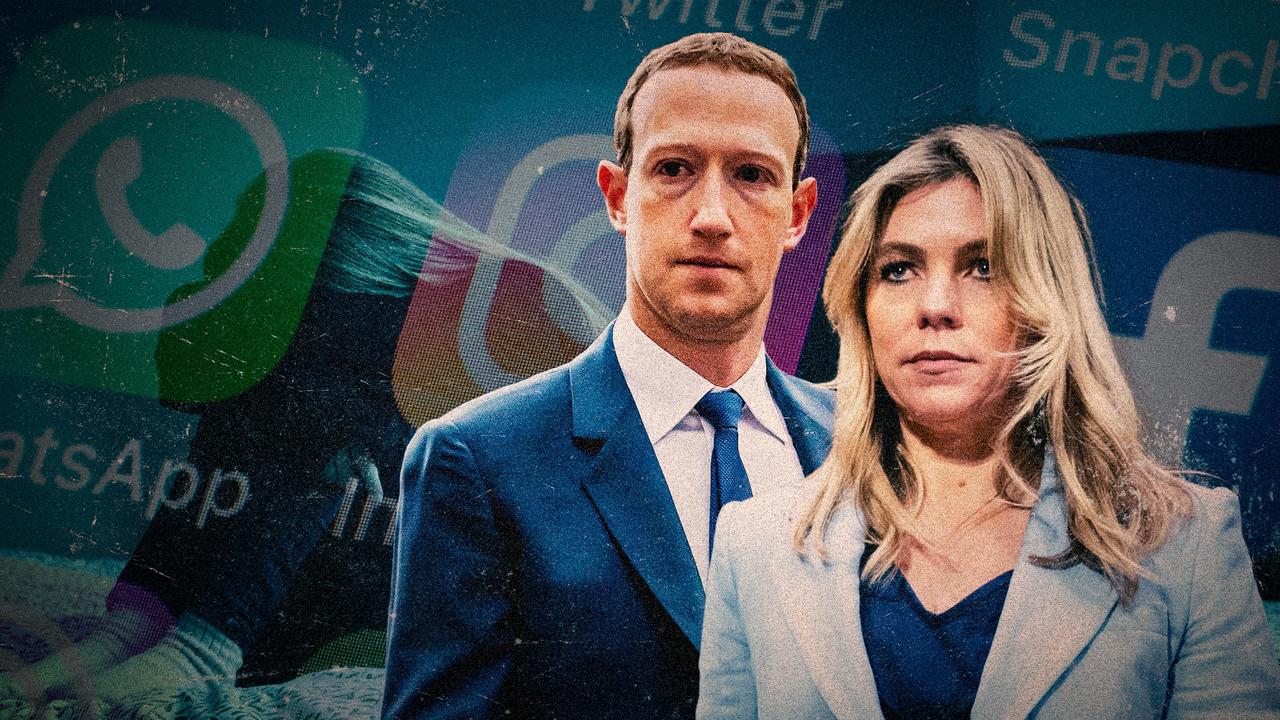
To join the conversation, please log in. Don't have an account? Register
Join the conversation, you are commenting as Logout